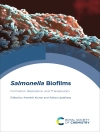Molecular biotechnology continues to triumph, as this textbook testifies – edited by one of the academic pioneers in the field and written by experienced professionals. This completely revised second edition covers the entire spectrum, from the fundamentals of molecular and cell biology, via an overview of standard methods and technologies, the application of the various ‘-omics’, and the development of novel drug targets, right up to the significance of system biology in biotechnology. The whole is rounded off by an introduction to industrial biotechnology as well as chapters on company foundation, patent law and marketing.
The new edition features:
– Large format and full color throughout
– Proven structure according to basics, methods, main topics and economic perspectives
– New sections on system biology, RNA interference, microscopic techniques, high throughput sequencing, laser applications, biocatalysis, current biomedical applications and drug approval
– Optimized teaching with learning targets, a glossary containing around 800 entries, over 500 important abbreviations and further reading.
The only resource for those who are seriously interested in the topic.
Bonus material available online free of charge: www.wiley-vch.de/home/molecbiotech
Daftar Isi
FUNDAMENTALS OF CELLULAR AND MOLECULAR BIOLOGY
The Cell as the Basic Unit of Life (M. Wink)
Structure and Function of Cellular Macromolecules (M. Wink)
Structure and Functions of a Cell (M. Wink)
Biosynthesis and Function of Macromolecules (DNA, RNA, and Proteins) (M. Wink)
Distributing Proteins in the Cell (Protein Sorting) (M. Wink)
Evolution and Diversity of Organisms (M. Wink)
STANDARD METHODS IN MOLECULAR BIOTECHNOLOGY
Isolation and Purification of Proteins (T. Wieland, M. Lutz)
Peptide and Protein Analysis with Electrospray Tandem Mass Spectrometry (A. Schlosser, W.D. Lehmann)
Isolation of DNA and RNA (H. Weiher, R. Zwacka, I. Herr)
Chromatography and Electrophoresis of Nucleic Acids (H. Weiher, R. Zwacka, I. Herr)
Hybridization of Nucleic Acids (H. Weiher, R. Zwacka, I. Herr)
Use of Enzymes in the Modification of Nucleic Acids (A. Groth, R. Zwacka, H. Weiher, I. Herr)
Polymerase Chain Reaction (A. Mohr, H. Weiher, I. Herr, R. Zwacka)
DNA Sequencing (R. Zwacka, A. Mohr, I. Herr, H. Weiher)
Cloning Procedures (T. Wieland, S. Lutz)
Expression of Recombinant Proteins (T. Wieland, S. Lutz)
Patch Clamp Method (R. Kraft)
Cell Cycle Analysis (S. Wölfl, A. Kitanovic)
Microscopic Techniques (S. Diekmann)
Laser Applications (M. Vogel, R. Fink)
KEY TOPICS
Genomics and Functional Genomics (S.Wiemann, M. Frohme)
Bioinformatics (B. Brors, K. Fellenberg)
Cellular Systems Biology (H. Schmidt-Gienewinkel, S. Legewie, B. Brors, R. König)
Protein?Protein and Protein?DNA Interaction (P. Uetz, E. Pohl)
Drug Research (M. Koegl, R. Tolle, U. Deuschle, C. Kremoser)
Drug Targeting and Prodrugs (G. Fricker)
Molecular Diagnostics in Medicine (S. Wölfl, R. Gessner)
Recombinant Antibodies and Phage Display (S. Dübel)
Transgenic and Gene-Targeted Mice and their Impact in Medical Research (R. Sprengel)
Gene Therapy: Strategies and Vectors (A. Groth, I. Herr)
RNA Interference, Modified DNA, Peptide Nucleic Acid, and Applications in Medicine and Biotechnology (N. Metzler-Nolte, A. Sosniak)
Plant Biotechnology (H. Hillebrand, R. Hell)
Biocatalysis in the Chemical Industry (M. Breuer, B. Hauer)
BIOTECHNOLOGY IN INDUSTRY
Industrial Application: Biotech Industry, Markets, and Opportunities (J. Schüler)
Patents in the Molecular Biotechnology Industry: Legal and Ethical Issues (David B. Resnik)
Drug Approval in the European Union and United States (G. Walsh)
Emergence of a Biotechnology Industry (C. Kremoser)
The 101 of Founding a Biotech Company (C. Kremoser)
Marketing (C. Kremoser)
Further Reading
Abbreviations
Glossary (M. Wink)
Subject Index
Tentang Penulis
Michael Wink studied biology and chemistry in Bonn and was awarded his doctorate from TU Braunschweig in 1980. After gaining his lecturing qualification in 1984/1985, he was awarded a Heisenberg grant by the German Research Council to work at the Max Planck Institute for Breeding Research in Cologne and from then at the gene center of Ludwig-Maximilians University in Munich. Following a chair for pharmaceutical biology at Mainz University in 1988, he accepted the post of Professor for Pharmaceutical Biology at the University of Heidelberg one year later. Between 2002 and 2004 he was the founding and managing director of the Institute for Pharmacy and Molecular Biotechnology, and dean from 2001 to 2005 for the new and popular course in molecular biotechnology offered by the university. Professor Wink’s areas of interest include pharmaceutical research, molecular biotechnology, and medicinal plants, as well as research into secondary materials and evolution.












